Mitochondrial Health May be the Key to Aging Well (and Having Kids)
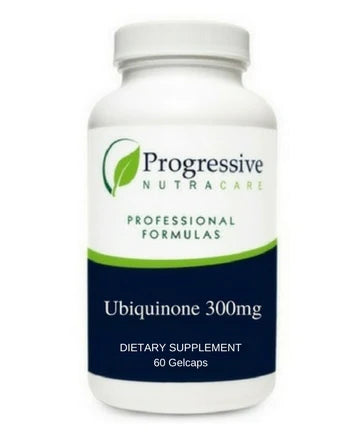
Medical science, public health initiatives, and a greater focus on preventative care mean that most people will likely live into old age. Assuming that you have a certain base level of health and don’t adopt too many unhealthy habits, the question is not “Am I likely to live until I’m old?”, but “What will the quality of my life be as I age?”. Medicine can often keep us alive deep into our seventies and eighties, but at what cost? Aside from the material costs of paying for treatment, there are the long-term health costs of living with various conditions and diseases. Metabolic diseases, heart conditions, obesity, cancers, autoimmune diseases, and Alzheimer's Disease can not only slow us down but rob life of much of its enjoyment. These conditions cause stress and worry that further prey on your health, and sap your energy.
Some basic things can be done to help ensure that you have a healthy, good quality of life from your youth, through middle age, and into old age and will help ensure that you’ll enjoy life more, and be there for the people you love:
- Exercise Frequently- You don’t have to do an intense workout multiple times a week, but at least move around throughout the day and walk for 20-30 minutes a day. Being sedentary accelerates muscle and bone loss, and increases the risk of cancer, heart disease, diabetes, and dementia.
- Eat Well- Don’t overeat, eat balanced meals with lots of fruits and vegetables, and especially fiber.
- Get Enough Sleep- Sleep is when your cells repair themselves and your brain resets itself. Not getting enough sleep stresses your body and mind and can cause a downward spiral for your health. Lack of sleep can lead to obesity, diabetes, heart disease, and depression.
- Maintain Social Connections- Your connections to your fellow humans can keep you sane and happy, and stimulate your mind. Keep those connections strong even as you age.
- Don’t Smoke- If you do, quit. There is an immediate benefit to quitting. Smoking dramatically increases your chance of lung cancer, heart disease, and dementia.
- Limit Drinking- Anything more than light drinking increases your risk for cancer and other diseases, impacts your memory, and likely causes premature aging.
So what do these things have in common? Other than the fact they can all be influenced by lifestyle choices, the types of conditions that result from these choices all have their roots in cellular degeneration. Even mental decline is rooted in the deaths of neurons and mitochondrial decline. What is mitochondrial decline? The mitochondria are the powerhouse of the cell. Every cell has mitochondria that act as a little factory that produces energy to power that cell and allow it to perform its functions efficiently. It does this partially by producing ATP. ATP is the primary coenzyme used for the production of energy. This energy is used to drive and support many processes in living cells, such as muscle contraction, nerve impulse propagation, condensate dissolution, and chemical synthesis. ATP captures chemical energy obtained from the breakdown of food molecules and releases it to fuel other cellular processes. Without ATP there would be little to no cellular energy, our bodies would rapidly decline and we would die.
ATP is produced in the mitochondria of cells through a process called oxidative phosphorylation. The energy released during respiration is conserved as ATP, which powers the cell. There are other cycles by which ATP can be produced, but oxidative phosphorylation is the most important. Coenzyme Q10 (CoQ10) plays a central role in mitochondrial oxidative phosphorylation and the production of adenosine triphosphate (ATP). CoQ10 acts as a cofactor in a series of reactions called the electron-transport chain. Here, it helps transfer electrons from molecule to molecule, helping to build up an electrochemical gradient whose energy is used to generate ATP. Without CoQ10, our mitochondria would not be able to produce ATP, and would not be able to produce energy. When we say that there is mitochondrial degradation, we often mean that the production of ATP has been lowered in the mitochondria because of a low level of CoQ10 in the cell.CoQ10 itself is naturally occurring in the body and is used in two forms. Ubiquinol is the reduced form of CoQ10, also known as Coenzyme Q10. The reduction of ubiquinone (CoQ10) to ubiquinol occurs in Complexes I & II in the electron transfer chain. During the redox reaction, reduction occurs when oxidized CoQ10 (aka ubiquinone) is used by the body and reduced, which causes it to gain electrons and hydrogen. This transforms ubiquinone to ubiquinol (the reduced form). This may seem very complicated, but you’ll see later on why all this matters. The bottom line is that CoQ10 in the form of ubiquinone and ubiquinol is essential to the production of ATP, which is where the cellular energy comes from that drives our bodily functions.
Luckily, CoQ10 is widely available as a supplement, both in the form of ubiquinone and ubiquinol. Although ubiquinol is the form that is found in larger amounts circulating in blood, for many conditions ubiquinone might be the most effective form. That’s because as a supplement, ubiquinone is likely more easily uptaken by the body when taken as a supplement. On the other hand, some people can’t convert ubiquinone to ubiquinol efficiently, and it might make sense to take one of each supplement as directed.
Let’s talk a little about CoQ10 and why it’s so important. Although it occurs naturally in the body and is so important for cellular energy, it tends to decline with age and can also be stripped away by oxidative stress resulting from inflammation, among other things. Lower CoQ10 levels have been observed in people with several conditions. While the exact connection between each connection isn’t always known, the fact that there is a correlation between the condition and lower levels of CoQ10 should tell us a lot. It’s suspected that inflammation is a key reason why CoQ10 can be decreased in many of these conditions. Let’s take a look at these conditions that correspond to lower levels of CoQ10, and at how CoQ10 supplementation might be able to help:
- Heart Failure- “One analysis of seven reviewsTrusted Source concluded that CoQ10 could be beneficial for managing heart failure, especially for those unable to tolerate other treatment methods. Another review of 14 studiesTrusted Source found that people with heart failure who took CoQ10 supplements had a decreased risk of dying and a greater improvement in exercise capacity compared to those who took a placebo.CoQ10 could also assist with restoring optimal levels of energy production, reducing oxidative damage, and improving heart function, all of which can aid the treatment of heart failure.” (Healthline
- Fertility- “Female fertility decreases with age due to a decline in the number and quality of available eggs.CoQ10 is directly involved in this process. As you age, CoQ10 production slows, making the body less effective at protecting the eggs from oxidative damage. Supplementing with CoQ10 seems to help and may even reverse this age-related decline in egg quality and quantity. Similarly, male sperm is susceptible to oxidative damage, which may result in reduced sperm count, poor sperm quality, and infertility. Several studies have concluded that supplementing with CoQ10 may improve sperm quality, activity, and concentration by increasing antioxidant protection.” (Healthline, same source as above)
- Diabetes- “Oxidative stress can induce cell damage. This can result in metabolic diseases like diabetes, as well as insulin resistance. In a 2018 meta-analysisTrusted Source, CoQ10 has been suggested to improve insulin sensitivity and regulate blood sugar levels. in people with diabetic neuropathy — a type of nerve damage that can occur in people with diabetes — found that taking 100 mg of CoQ10 daily for 12 weeks may have improved HbA1c levels and insulin resistance. Not only that, but it also may have reduced markers of oxidative stress and harmful compounds, such as advanced glycation end products, compared to a placebo.”((Healthline, same source as above)
- Cancer- Although taking CoQ10 supplements has so far not been demonstrated to have a role in cancer treatment, that doesn’t mean future studies won’t demonstrate some efficacy. For now, what we know is that those who have many types of cancer have lower levels of CoQ10. Some studies done in test tubes show that CoQ10 might block cancer cells, but more research is needed.
- Mental Decline- “Mitochondrial function tends to decrease with age, which can lead to the death of brain cells and contribute to conditions like Alzheimer’s and Parkinson’s.Unfortunately, the brain is very susceptible to oxidative stressTrusted Source due to its high fatty acid content and its high oxygen demand. This oxidative stress enhances the production of harmful compoundsTrusted Source that could affect memory, cognition, and physical functions. CoQ10 may reduce these harmful compounds, possibly slowing the progression of Alzheimer’s and Parkinson’s disease, according to some animal studies in 2019Trusted Source and 2021Trusted Source. However, more research on humans is needed.” (Healthline, cited above).
- Exercise- “Abnormal mitochondrial function can reduce muscle energy, making it hard for muscles to contract efficiently and sustain exercise. CoQ10 may help exercise performance by decreasing oxidative stress in the cells and improving mitochondrial function. One study found that CoQ10 supplementation may have helped inhibit oxidative stress and markers of muscle and liver damage in adolescent elite swimmers during their competition phase. Moreover, supplementing with CoQ10 may help reduce fatigueTrusted Source which could also potentially improve exercise performance.” (Healthline, cited above).
- Gum Disease- “Gum disease is a common problem that causes swelling, bleeding, pain, and redness of the gums. Clinical studies show that people with gum disease tend to have low levels of CoQ10 in their gums. A few studies with small numbers of people found that CoQ10 supplements led to faster healing and tissue repair, but more research is needed.” (Mt Sinai Health Library)
One final point- many of these conditions are linked to inflammation. Other inflammatory conditions are likely to show similar links to low levels of CoQ10. Inflammation can result from many other conditions, including gut conditions. If you have an inflammatory condition, you might be a candidate for CoQ10 supplements. If you’re not sure if you have an inflammatory condition, but do have one of these other conditions, then likely you have inflammation. Even if you don’t, consider trying CoQ10 to help restore some of your cellular energy.
- Tags: Article Conditions Inflammation
- Robert Thomas

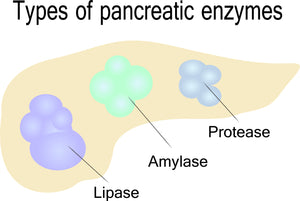

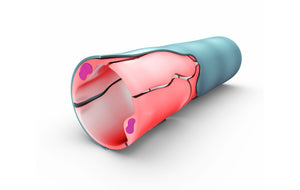
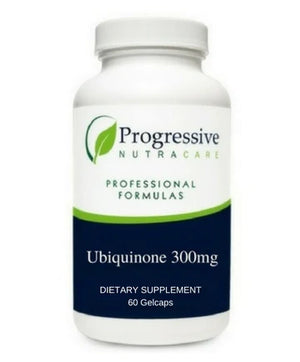

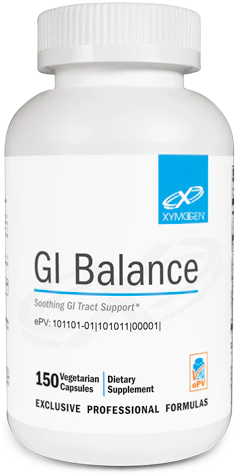
Comments 0